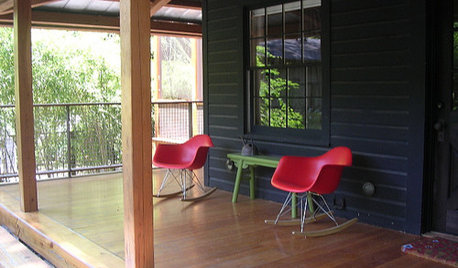Stupid question
scott123456
9 years ago
Related Stories

SELLING YOUR HOUSE15 Questions to Ask When Interviewing a Real Estate Agent
Here’s what you should find out before selecting an agent to sell your home
Full Story
WORKING WITH PROS9 Questions to Ask a Home Remodeler Before You Meet
Save time and effort by ruling out deal breakers with your contractor before an in-person session
Full Story
DOORS5 Questions to Ask Before Installing a Barn Door
Find out whether that barn door you love is the right solution for your space
Full Story
BEDROOMSHouzz Quiz: What Color Should You Paint Your Bedroom Walls?
Cool and soothing, or warm and spicy? Answer these questions and learn what hue is right for you
Full Story
COFFEE WITH AN ARCHITECTA Few Things I Would Like to Ask Frank Lloyd Wright
It could take a lifetime to understand Frank Lloyd Wright's work — less if we had answers to a few simple questions
Full Story
LIFEHow to Navigate an Extended Guest Stay
Keep sharing living quarters a positive experience by pondering the answers to these questions in advance
Full Story
GARDENING GUIDESLet Lilac Love Flower This Spring
Whatever you bestow or receive for Mother's Day, lilacs can be an unmatched gift in the garden in May
Full Story
CONTRACTOR TIPSBuilding Permits: When a Permit Is Required and When It's Not
In this article, the first in a series exploring permit processes and requirements, learn why and when you might need one
Full Story
CURB APPEALDIY Painting Project: A Colorful Front Door
Give your entrance a notice-me new hue to make it inviting and energizing for fall
Full StoryMore Discussions







2ajsmama
digdirt2
Related Professionals
Gainesville Landscape Contractors · Surprise Landscape Contractors · Kahului Landscape Contractors · Lewisville Landscape Contractors · Mashpee Landscape Contractors · Post Falls Landscape Contractors · Red Oak Landscape Contractors · Albuquerque Roofing & Gutters · Marlboro Roofing & Gutters · Savannah Roofing & Gutters · Roswell Roofing & Gutters · Columbus Roofing & Gutters · Aurora Driveway Installation & Maintenance · Brea Driveway Installation & Maintenance · Centreville Driveway Installation & Maintenancejonesella17
2ajsmama